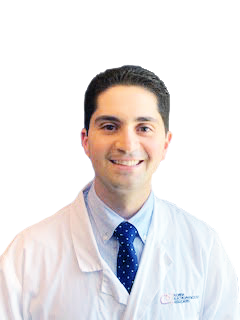Overview
Atrial fibrillation (AFib) is an irregular and often fast heartbeat from the top chambers of the heart. In the U.S. alone, over 5.5 million people have atrial fibrillation, and this number is growing as the population ages. AFib can lead to strokes and heart failure.
Symptoms
The most common symptoms of AFib are palpitations, fatigue, exercise intolerance, and shortness of breath. Symptoms may be occasional meaning they last for a few minutes to hours, or they may be persistent which means your heart rhythm doesn’t go back to normal on its own. If left untreated, atrial fibrillation can cause strokes and heart failure, which can have life altering consequences.
Causes
While the exact cause of atrial fibrillation is unknown, we do know that advancing age is the strongest risk factor. It affects certain groups of people more than others, especially patients with existing cardiovascular diseases. Modifiable risk factors include high blood pressure, obesity, and sleep apnea.
Treatment
Atrial fibrillation is a progressive disease and becomes more difficult to treat the longer it persists. The most effective treatment for atrial fibrillation is catheter ablation. This is a low-risk outpatient procedure that returns the heart to normal rhythm and decreases the chance of returning to atrial fibrillation. This treatment is most effective early in the diagnosis of atrial fibrillation. Medications also assist in controlling the heart rate and rhythm, and blood thinners are critical to decrease the likelihood of stroke.

